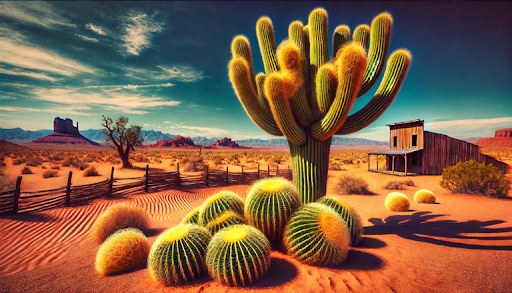The Wild Wild West: Hardships and Luxuries
The Wild Wild West, a term that conjures images of vast open plains, rugged cowboys, and the tantalizing promise of new beginnings. While it remains romanticized in popular culture, life in the American frontier during the 19th century was a mix of brutal hardships and unexpected luxuries.
Hardships of the Wild West
1. Harsh Living Conditions
The settlers faced extreme weather conditions, from scorching summers to frigid winters. Homes were often rudimentary, constructed from logs or sod, offering little protection against the elements. Disease was rampant, with limited medical knowledge and few doctors available.
2. Lawlessness and Danger
The Wild West was notorious for its lawlessness. With vast stretches of land and sparse populations, enforcing the law was a challenge. Bandits, outlaws, and conflicts with Native American tribes posed constant threats. Famous figures like Jesse James and Billy the Kid became legends, embodying the era's dangerous allure.
3. Isolation and Loneliness
Many settlers were isolated, living miles from the nearest neighbor or town. This isolation could lead to profound loneliness and mental health struggles. The vast distances also meant that communication with loved ones back east was infrequent and slow, often taking months for letters to arrive.
4. Hard Labor
The daily life of a frontiersman or woman was grueling. Farming the arid land, tending to livestock, and maintaining homesteads required relentless physical labor. The gold rush brought its own set of challenges, with prospectors enduring back-breaking work and often finding little to no reward.
5. Limited Resources
Access to basic necessities was limited. Food supplies were often scarce, and settlers had to rely on hunting, farming, and trading with Native Americans or other settlers. Water was a precious commodity, especially in the arid regions, leading to conflicts over water rights.
Luxuries of the Wild West
1. Freedom and Opportunity
For many, the Wild West represented the ultimate freedom. The Homestead Act of 1862 offered 160 acres of public land to settlers for a nominal fee, providing an unprecedented opportunity to own land and build a new life. This sense of possibility attracted many immigrants and Americans from crowded eastern cities.
2. Natural Beauty
The Wild West was home to breathtaking landscapes, from the towering Rocky Mountains to the expansive Great Plains. This natural beauty offered a stark contrast to the industrialized cities of the East, providing a sense of peace and inspiration to those who ventured west.
3. Innovation and Ingenuity
Necessity drove innovation in the Wild West. Settlers developed new farming techniques, irrigation methods, and transportation solutions. The completion of the Transcontinental Railroad in 1869 revolutionized travel and trade, connecting the East and West like never before.
4. Cultural Exchange
Despite conflicts, the Wild West was a melting pot of cultures. Native American tribes, Mexican settlers, African American freedmen, Chinese laborers, and European immigrants all contributed to the cultural tapestry. This exchange enriched the lives of many, introducing new foods, traditions, and ways of life.
5. Community and Resilience
Frontier life fostered a strong sense of community and mutual support. Settlers often banded together to build homes, harvest crops, and protect each other from threats. This spirit of cooperation and resilience became a defining characteristic of the Wild West.
Conclusion
The Wild Wild West was a land of stark contrasts. Its hardships tested the limits of human endurance and resilience, while its luxuries offered freedom, beauty, and opportunity. Understanding this duality provides a deeper appreciation of the people who lived through this transformative period in American history. They were pioneers in every sense, carving out lives in a land that was as unforgiving as it was inspiring.



Comments
Post a Comment